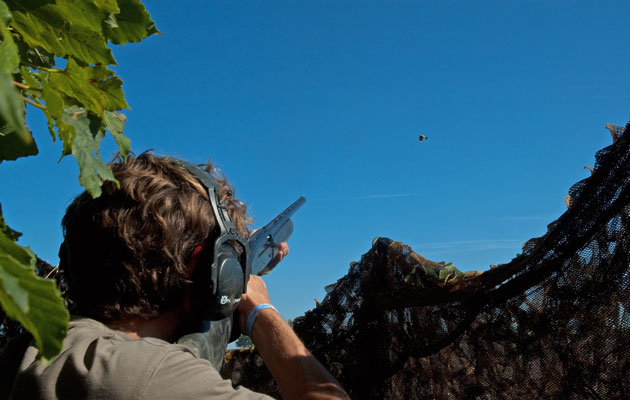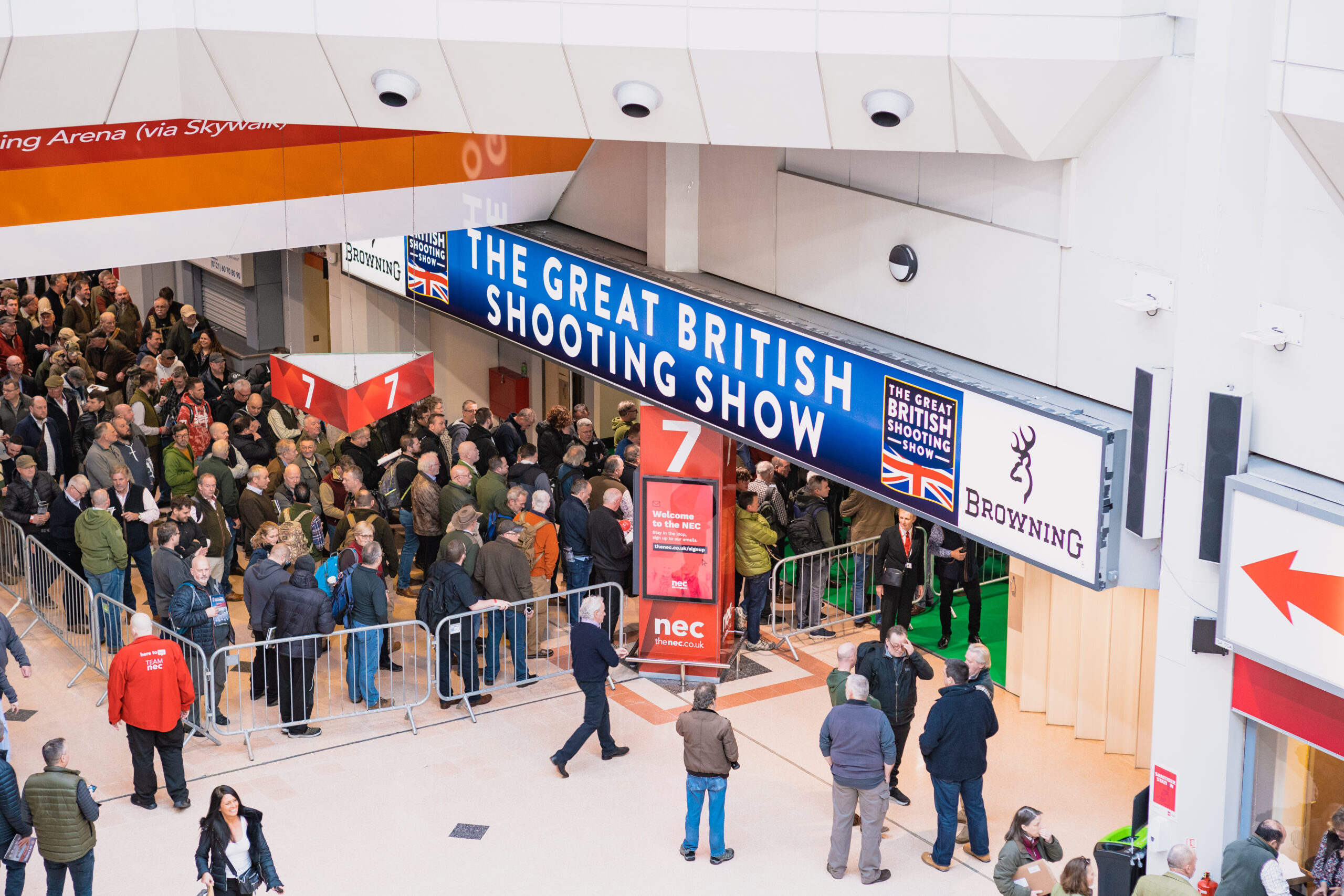Why you should never fire a gun without wearing ear defenders
Ringing in the ears, light-headedness, mild nausea, headaches. After reading this you'll be reaching for the ear defenders every time you shoot

Always wear ear protection
Are you cavalier about ear protection when you’re shooting? Do you ever get ringing in your ears afterwards that takes a while to subside? Do you find your sleep or everyday activities affected after shooting?
Beware. You could be showing signs of the dreaded tinnitus and failure to use ear protection when shooting means that you are at a risk of suffering from this debilitating condition. (Read our suggestions for the best ear defenders.)
So what is tinnitus?
Just what is tinnitus? After studying the facts and figures regarding cause and effect, what it all boils down to for those of us who shoot, is that noise and recoil are the obvious causes and unless you use some form of hearing protection, your ears are subjected to far too many decibels each time you use a shotgun or rifle. The effect can be anything from a brief, mildly annoying, high-pitched whistle or buzz, to a really serious long-term condition that causes pain, discomfort, dizziness – and even disorientation.
Tinnitus apart, despite using ear protection, many shooters still suffer a significant loss of hearing, particularly at the high end of the sound scale. After 50 years of shooting, I have great difficulty in discerning high-pitched noises. Anything in fact, that’s on a similar tone to the constant ringing inside my head. Around other people, I’m reasonably okay in one-to-one conversations, but in a crowded pub or at a noisy shoot dinner, I can only nod, smile, agree with everyone and hope for the best. Communal speech is virtually impossible to decipher, with only an odd word or two picked out from what is usually a background murmur.
How does hearing loss start?
It all began back in my teens. Following a busy shooting day, I began to experience an unpleasant ringing in my ears, accompanied by a strange sensation of light-headedness, mild nausea and sometimes an annoying headache. On bad days it often continued throughout the evening, but after a good sleep usually faded away until the next busy session with the gun. Then it got worse.
I remember exactly when it happened; an afternoon’s shooting on barley stubble. I’d taken about a score of pigeons over decoys, and was squinting into bright sunlight. Noticeably louder than normal, eventually the ringing kicked off all the usual symptoms, but at a higher level than before and, most unusually, I was ready to call it a day long before the pigeons did.
Permanent high-pitched ringing in the ears
The damage had been done. The high-pitched ringing was permanent, though varied in degrees of intensity. With few other sounds to distract attention, it was definitely far worse at night.
I tried stuffing my ears with cotton wool when shooting, then eventually earplugs. Both helped, but it was far too late. The ringing would always be there. All I could do was try to minimise future noise levels to stop it getting worse. Besides a lifelong passion for decoying pigeons, game and wildfowl shooting, and lamping forays for rabbits during the summer months, I was quite heavily into competition skeet and sporting clays. It all added up to quite a lot of shooting, though at the time few Guns wore ear protection, even at clay shoots.
I remember taking part in the British Open, at Bedford, way back in my teens. A three-day event, it was constant banging all the way. Brick wall partitions between the ranges rebounded echoes, rattling around in my head until I was almost floating. My concentration suffered badly, and it was only a few years before I gave up serious clayshooting to return to falconry.
Since then, the noise has always been there, never stopping. I’ve tried everything, but with no known cure it’s something you gradually learn to live with.

Keeping your ear defenders or plugs on at all times during shooting will reduce the risk of damaging your hearing or worse, suffering from tinnitus.
Recoil is a bigger part of the tinnitus problem than people realise
I started one game season with a .410. By the time January pheasants came along it was back to the 12-bore using 2in cartridges, which worked well for a couple of seasons until a few sub-standard loads destroyed my confidence in using them. Heavier load, sub-sonic cartridges were tried, but found to be very slow, and I eventually settled to using normal, though fast, light loads, far more successfully for many years.
The controversial non-toxic shot laws suddenly came into force. At first, we were having to use far heavier loads. Everything I tried was far louder, had noticeably more recoil, and was – at the time – far less effective than lead. Things have developed since then, but recoil itself is a bigger part of the tinnitus problem than most people realise, and getting hit hard when you’re already feeling low soon gets the head spinning. Flinching becomes a normal reaction when taking a shot, which is far from helpful when fluency, smoothness and confidence are required to shoot at your best.
One way and another I made the best of it until a particularly heavy winter of decoying. Right from mid-November, two or three days a week were spent on various bits of oilseed rape. Combined with a busy game and wildfowl season, it all added up to a fantastic amount of shooting. Teaming up with shooting buddy, Ed, my score was 17 days well over 100, plus two double centuries from one area alone. The cartridges added up. During the latter days, I’d just about had enough, but with several combined days of 300-400 plus, it was hard to walk away from.
Giving up shooting?
All next spring I woke up with a bad head, feeling dizzy and extremely exhausted. It was suggested I give up shooting – tinnitus has forced several Guns to do just that – but when it’s such a huge part of your life it might be easier to actually stop breathing.
Would a smaller gun help? A session with Ed’s 20-bore seemed no better, and in the end I decided to go the whole hog by downsizing to a 28. Using around half a 12-bore load, hopefully the adverse effects would be cut significantly. But would such a little gun be up to the job?
The great majority of my shooting is pigeon over decoys, and a reduction in range would mean getting the quarry to come in close. As with any new gun, the first few shots brought mixed results, but a week later an opportunity came along to really give it a try. Starting just before midday, I managed to clock up over 300 birds during a great afternoon’s decoying. Granted, the pigeons were most co-operative – it was ones and twos all the time – but it taught me that with straight shooting, the little small-bore could still get the job done. It was a big boost towards confidence in the gun – and also silenced the critics. Better still, though, such a session with a 12-bore would have brought severe repercussions, after firing the best part of 400 shots almost non-stop, hardly any side-effects were noticeable!
Never fire a gun without wearing ear defenders or other effective ear protection
I fear there is no cure for tinnitus. In some mild cases sessions of deep relaxation are said to help.
Even a single shot can cause irreparable damage to your hearing. So never fire a gun without using effective hearing protection.
It’s one of the shooting safety rules








